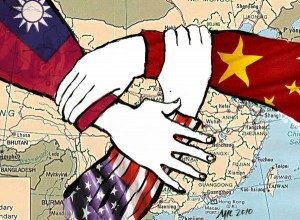Attesting Taiwan
Trump violates “One China” agreement, instigates weakened relations

United States and Chinese relations has been a vital component of international politics.
The two countries have been engaging in diplomatic and economic engagement for several decades now which has been key for both countries’ stability.
Recently, President-elect Trump officially recognized Taiwan by receiving the congratulatory call by the Taiwanese president for his win in the election.
Why is this such a big deal?
This is a big problem because it violates the “One China” policy agreement signed by the U.S. four decades ago where it states Washington cannot recognize Taiwan as a sovereign state unless Beijing was to enter a certain agreement with Taiwan.
For those who don’t know, Taiwan is an island off the southern coast of China that has been a democratically-elected government since 1949. Although Taiwan sees itself as an independent territory, China views it as a province that is part of the People’s Republic of China (PRC).
China and the U.S. agreed on “One China” agreement in 1972, which was signed by then-president Richard Nixon and Mao Zedong.
From the time President-elect Trump recognized Taiwan, he has since commented on not wanting to follow this agreement, which resulted in backlash by both domestic and foreign analysts.
The PRC has publicly disapproved of Trump’s actions and has called the White House to abide by the policy agreement.
Many political analysts and politicians are afraid this action will result in increased military tension in the South China Sea — in fact, it already has started to escalate.
On Dec. 15, a U.S. vessel had its underwater drone stolen by a Chinese warship. According to CNN, officials aren’t sure if this was instigated by Trump’s recent comments.
The current state of Sino-U.S. relations are unknown, and Chinese officials state if the U.S. doesn’t abide by the agreement, it will damage the standing diplomatic and economic relations.

Ifrah Sayyada is a staff writer for “The Tiger Print.” She enjoys writing features, opinions and news stories about current issues. Along with being...



